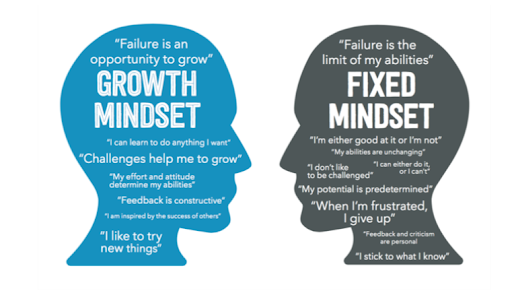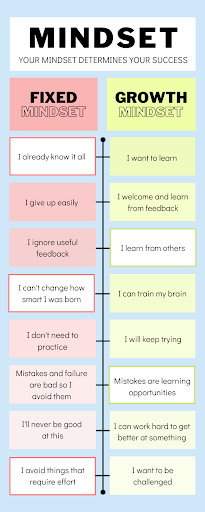
In the 2020-21 school year I worked with my STEM specialist on training five high ability elementary teachers in Project Based Learning (PBL). They did not volunteer for this training but were “voluntold” to attend. The training took place over a series of half days for several months. At the first training session I knew that these teachers were really not sure about how PBL was going to work in their classrooms. You know, too many standards to cover, not enough time for something extra, giving up control, letting students struggle in the process…it just all seemed too large. However, as we continued with the training broken down in bite size pieces I began to see a “shift” in their thinking. As they started planning their projects, starting with the standards, the excitement started to build about engaging their students in the project. They were no longer stuck in a fixed mindset, but started believing that they had the ability to grow throughout the process. What came from this training were five very creative and innovative PBL units which far outweighed our expectations! Do you possess the belief that everyone can change and grow?
What is a growth mindset and how do I know if I have one?
A growth mindset is centered around the belief that your qualities can be developed through your efforts. It is a belief that everyone has the ability to change and grow. As educators we want to believe in all of our students. Do you really believe that EVERYONE has the ability to change and grow? It is necessary in order to have a growth mindset.
Watch this short video from John Spencer on Growth Mindset
After viewing the video how can you respond to the following questions:
- How do you relate to this definition of Fixed Mindset vs. Growth Mindset?
- Do you see failure as a chance to learn and move forward or do you view failure as permanent?
- Do you accept Critical feedback as an opportunity to improve or as an attack?
- Do you view your talent as fixed and therefore choose easier tasks or can you embrace tasks that are more challenging and try to improve?
- Can you take an obstacle and view it as a chance to solve problems or do you simply give up?
- Do you see your learning as continually improving or do you see your accomplishments as measurable?
- Can you take creative risks and improve from them or are you less likely to explore creative risks for fear of failure?
Carol Dweck, author of Mindset: The New Psychology of Success and Stanford University Professor, says we can differentiate growth and fixed mindsets across a few dimensions, challenges, setbacks, and efforts and outcomes.
Growth mindset is one of the most forefront factors in determining your growth over time in abilities. This also applies to our students. Do you believe that your students have limited abilities or do you believe that they can all grow regardless? (Ranadive, 2016)
Here is a great graphic from Canva.com that puts the two mindsets in columns to compare. Think long when you consider what column you fit under. Sometimes we believe we are in the growth column, but there is a lot of reflection that needs to take place before considering where you are in the process. It is okay to be in the “baby stages” as long as you recognize where you need to grow.

This video highlights a Canvas module that I put together for teachers in our corporation to reflect on what type of mindset they have. This module could be used for anyone in an educational setting, teachers, administrators, assistants, etc. It is meant for participants to really dive into how they feel about growth mindset and be honest about where they are. It is available in Canvas Commons with the title of Fixed or Growth Mindset? by Jo Cox, Yorktown Community Schools. For now, let’s keep on growing our minds! Feel free to contact me with any questions or reflections about the module: jcox@yorktown.k12.in.us.

